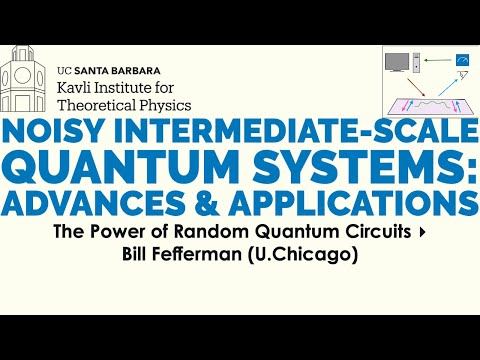Description:
Explore the power of random quantum circuits in this conference talk from the Noisy Intermediate-Scale Quantum Systems: Advances and Applications conference. Delve into the concept of classical intractability and simulation algorithms for quantum systems. Examine the quantum supremacy conjecture and its formal statement. Follow the roadmap through average case hardness for Permanent, hardness for Random Quantum Circuits, and attempts to adapt Lipton's proof. Investigate the extensions to previous research and understand the challenges of noisy random quantum circuits. Discover the "noise barrier" to improving robustness and consider future directions regarding Random Circuit Sampling. Gain insights from Bill Fefferman of the University of Chicago in this 49-minute presentation, which offers a comprehensive overview of recent advances in integrable models across mathematical physics, condensed-matter physics, and string theory.

The Power of Random Quantum Circuits - Bill Fefferman
Add to list
#Science
#Physics
#Mathematical Physics
#Condensed Matter Physics
#Theoretical Physics
#String Theory
#Integrable Models